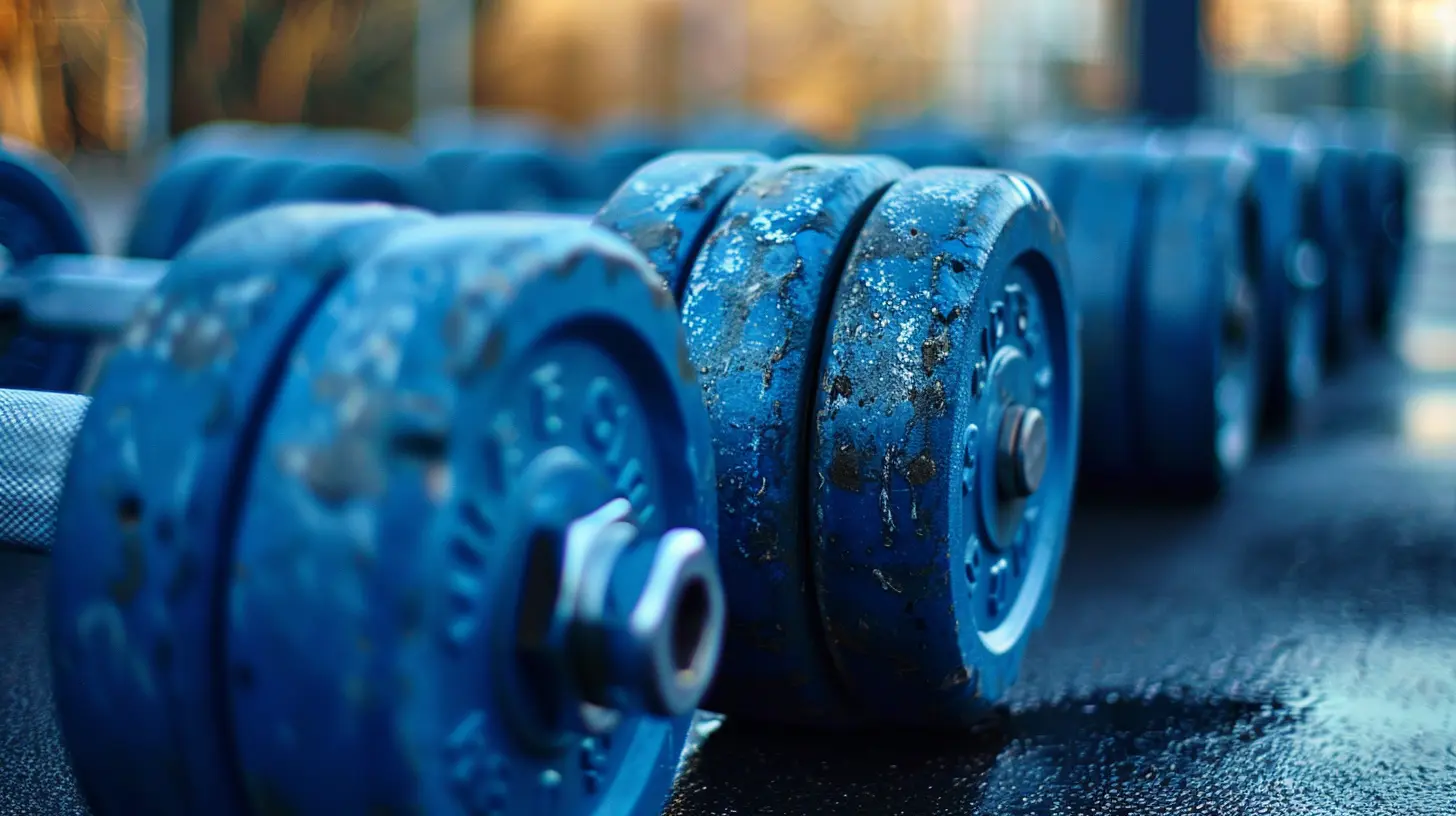22 April 2025
Ever jumped straight into a workout only to feel stiff, sluggish, or—worse—injured? Skipping a warm-up is like revving a car engine in freezing weather without letting it idle first. Your body needs to transition from rest mode to performance mode, and a solid warm-up is the key to that.
Not only does a proper warm-up prevent injury, but it also enhances flexibility, boosts circulation, and gears up your muscles for peak performance. So, if you’re serious about fitness, let’s break down the best warm-up routines to keep you moving safely and powerfully. 
Why Warming Up Is Non-Negotiable
Think of your muscles as rubber bands. When cold, they’re stiff and prone to snapping. But when warmed up, they stretch and contract easily, reducing the risk of strains and tears.A good warm-up does three main things:
1. Increases Blood Flow – More oxygen reaches your muscles, improving endurance.
2. Enhances Joint Flexibility – Loosens up stiff joints, reducing the risk of sprains.
3. Activates the Nervous System – Signals your brain and muscles to fire up efficiently.
Whether you’re lifting weights, running, or hitting a HIIT workout, skipping this step is like trying to sprint in sand—you won’t get far without struggling. 
The Best Warm-Up Routines for Injury Prevention
To make the most of your workout (and stay injury-free), you need more than a few arm circles and neck rolls. Here’s a structured, effective warm-up to prime your body.1. Light Cardio (5-10 Minutes)
Before anything else, you need to get your heart rate up. Light cardio increases circulation and preps your body for more intense movements. Try:- Jump Rope – A full-body warm-up that improves coordination.
- Jogging or High Knees – Great for lower-body activation.
- Jumping Jacks – Simple but effective for total-body movement.
Aim for a steady pace, not an all-out sprint. This isn’t the workout—just the primer.
2. Dynamic Stretching (5-10 Minutes)
Forget static stretching before a workout. Holding stretches cold can actually reduce strength and increase the risk of injury. Instead, go for dynamic movements that mimic exercises you’ll be doing.Best Dynamic Stretches:
- Leg Swings – Hold onto a surface and swing one leg forward and back. Loosens hamstrings and hip flexors.- Arm Circles & Cross-Body Swings – Preps shoulders for lifting movements.
- Walking Lunges with Torso Twist – Engages the core and stretches the hip flexors.
- Butt Kicks & High Knees – Warms up the quads and hamstrings dynamically.
Move through each exercise for about 30-60 seconds per side. Keep the movement controlled, not rushed.
3. Joint Mobilization (3-5 Minutes)
Your joints need love too, especially before lifting or high-impact movements. Mobility exercises help lubricate the joints and improve range of motion.- Ankle Circles – Rotate each foot in both directions to prevent sprains.
- Hip Openers – Stand and rotate your knee outward, then inward.
- Wrist & Elbow Rolls – If you’re lifting weights, this is a game-changer.
- Scapular Activation – Roll your shoulders back and down, keeping the spine neutral.
Neglecting joint mobility can lead to stiffness and poor form, increasing injury risk.
4. Muscle Activation (5 Minutes)
Even if your body is warm, some muscles need extra activation before they fire properly during a workout. Weak or inactive muscles can lead to compensations—where other muscles overwork to make up for them.Best Activation Moves:
- Glute Bridges – Fires up the glutes and hamstrings.- Resistance Band Lateral Walks – Engages the hips and prevents knee cave-ins.
- Plank Variations – Activates the core muscles for stability.
- Single-Leg Balance Work – Improves stability and prevents ankle injuries.
These small movements make a big difference, especially if you sit a lot during the day.
5. Sports-Specific Drills (3-5 Minutes)
If you’re preparing for a specific workout, finish your warm-up by performing slower, controlled versions of the actual exercises you'll be doing.- Runners: Do a few controlled strides or skipping drills.
- Lifters: Practice slow squats or light-weight deadlifts.
- Basketball/Soccer Players: Perform light agility drills or dribbling movements.
This step ensures your body is completely prepped for the movements ahead. 
Common Warm-Up Mistakes to Avoid
Even the best warm-up won’t help much if you’re making these common mistakes:1. Skipping It Entirely – Your muscles need a transition phase. Cold starts equal injuries.
2. Going Too Hard – A warm-up isn’t meant to exhaust you—save the energy for the actual workout.
3. Doing Only Static Stretching – Before a workout, dynamic movements are better. Save long holds for post-workout.
4. Not Tailoring It to Your Workout – Running warm-ups differ from weightlifting or yoga prep. Customize accordingly.
5. Rushing Through It – A half-hearted warm-up won’t fully prepare your body. Give it the time it deserves. 
Wrapping Up
A solid warm-up is the difference between peak performance and potential injury. It’s not an “extra step” to skip when short on time—it’s a necessity for longevity in fitness.By following these warm-up routines—light cardio, dynamic stretching, joint mobility, muscle activation, and sports-specific drills—you’ll set yourself up for stronger, safer workouts. Next time you're about to train, take 10-15 minutes to warm up right. Your body will thank you for it.






Quentin Luna
Great article! I appreciate the emphasis on warm-up routines for preventing injuries. It's often overlooked, yet crucial for optimal performance. I especially liked the tips on dynamic stretching—it makes a real difference. Looking forward to more insights on how to stay safe while enjoying our workouts. Keep up the excellent work!
April 25, 2025 at 3:48 AM